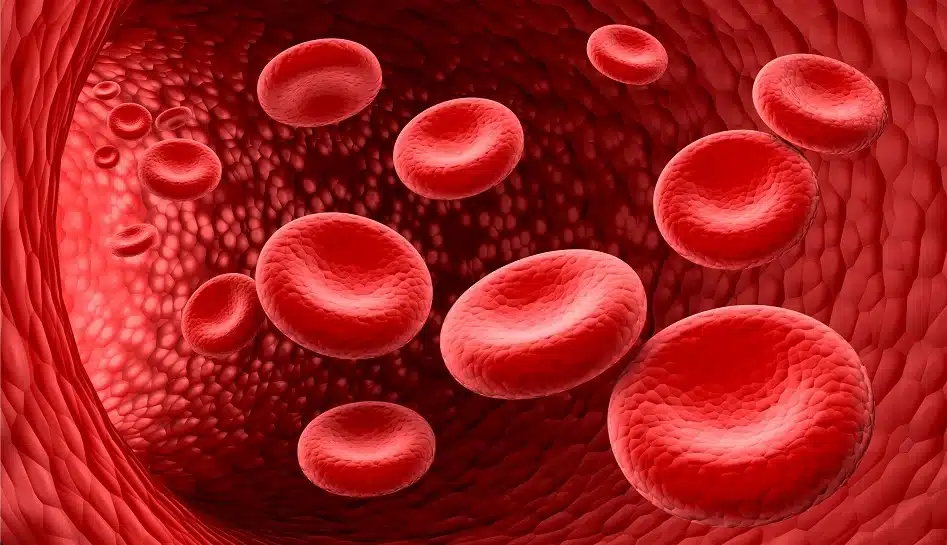Fewer people have these rarest blood types, and those who do find it challenging to give or receive blood from others
The human body typically has four different blood types: A, B, O and AB. Also present in our bodies are antigens, which are the proteins found on the surface of our red blood cells (RBCs). The blood groups A, B, O, or AB are classified according to the antigen present in our RBCs. Our blood also has high-frequency EMM antigens.
If either antigen A or antigen B is present on the RBC surface, then the blood type will be A or B respectively. If both antigens A and B are present on the surface, then the blood type will be AB. Alternatively, if antigens A and B are both absent, then the blood type will be O. All these blood types can be either negative or positive.
The ABO blood classfication system also has either Rh-positive or Rh-negative antigens depending on whether the Rh-D factors cells are present or absent.
Before a transfusion, doctors determine whether the blood is compatible with the patient. Giving someone the wrong blood type can lead to several reactions and may even prove fatal in some cases.
Some rare blood types do not fit into the traditional ABO blood system. They lack high frequency or multiple common antigens on the surface of RBCs that are usually found in people. These blood types are so named because there are fewer of them in the human population. Generally, people with rare blood types are unable to donate and receive blood from others.
List of some rarest blood types
EMM Negative
Recently a 65-year-old man from Rajkot suffering from heart disease was found to have EMM Negative type blood. This is the first instance of the EMM negative blood type in India and overall, tenth in the world. EMM phenotype is present in all human RBCs and is designated as the 42nd blood type. However, in one of the rare cases, the man did not have a single EMM antigen in his RBCs and the blood type was named EMM-negative.
Ael Type
The first case of the Ael blood type in India was recently discovered in Ahmedabad. A 30-year-old resident of Jabalpur, Madhya Pradesh had gone to donate blood under the impression that his blood type was O negative. However, his sample did not fit into the ABO blood classification system. It was discovered that he has the rare Ael blood type. Ael has the least amount of A antigens present in the A subgroups. It can only be detected via special tests such as advanced gel technology. A person with this blood group can receive the O blood type but can donate only to the A blood type.
P-Null Type
It was discovered in India in 2018 by the doctors at the blood bank of Kasturba Medical College, Manipal. A patient required immediate transfusion but his sample did not match with over 80 other units. His sample was further tested and was also sent to the Blood Groups Reference Laboratory, Bristol UK, where it was confirmed that the patient has the rare P-null blood type. P-null type blood has no antigens on the surface of RBCs. Most people have the minor blood group P but this patient didn’t have it hence the name P-null.
Rh-Null Type
This is so rare that it is also called the golden blood type. It was first discovered in 1961 in an Aboriginal Australian woman. To date, fewer than 50 people are known to have it. It contains no Rh antigens on the RBCs. If people with Rh-null blood type require a transfusion, they can receive this blood type only. However, Rh null type can be donated to anyone having a rare blood type within the Rh system. It’s also extremely valuable in terms of research for doctors.
AB Negative Type
This blood type is the rarest of the 8 blood types in the ABO classification system. People with AB- can receive blood from all other Rh types as it has both A and B antigens on the RBCs. It can, however, only be donated to those who have the AB blood type, both Rh negative and Rh positive. It is a very versatile type of blood group in terms of plasma donation as AB plasma can be donated to anyone.
Way forward
Rare blood types are tricky. While they are pertinent for research, they are also quite risky for those who have them. People with rare blood types have very limited options for donating as well as receiving blood. It becomes challenging to find a suitable donor. It is sometimes necessary to import blood from another country. It is important to establish a rare blood donor registry with full details, both at the national and international level so that patients in urgent need of a transfusion can find compatible blood for themselves in time.
Read More: https://h-leads.com/bombay-blood-group-one-of-the-rarest-in-world/

















